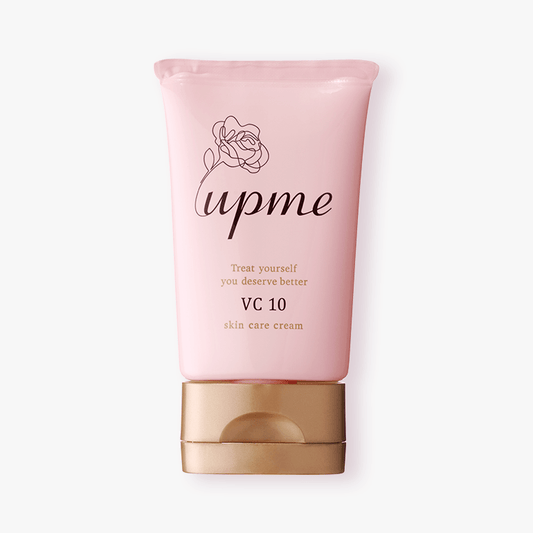
Daily habits to avoid troubles in sensitive zones
Thank you for visiting our website.
Researched and developed by 95 doctors
Contains 10% of our proprietary stable neutral vitamin C derivative
Carefully crafted Femcare brand cream
I'm Sato, a staff member at "up me".

The theme this time is "Daily habits to avoid problems in the delicate areas."
Introduction
In recent years, products and information focused on caring for intimate areas have been gaining attention among women.
It is known that women in their 30s and 40s in particular are increasingly suffering from problems in their delicate areas due to changes in hormone balance.
To deal with this, daily care is extremely important.
In this column, we will provide a detailed, expert explanation of daily habits to avoid problems in the delicate areas, including skin care using vitamin C, creams, and vitamin C derivatives.
What are problems in the delicate zone?
There are various problems in the delicate area, including itching, redness, rashes, odor, and darkening.
These can be caused by many factors including skin friction, poor hygiene, hormonal fluctuations, irritation from clothing, hair loss, and more.
The skin in the delicate area is thinner than other parts of the body, so it reacts sensitively to even the slightest changes in the environment.
Basic delicate zone care
Daily care is essential to prevent problems in the delicate areas.
Below are some basic care instructions.
1. Keep it clean
It is important to keep your delicate areas clean at all times.
However, washing too much can remove too much sebum and cause problems, so it is important to wash appropriately and with a gentle soap.

2. Choose the right underwear
Choosing underwear made of breathable cotton will help keep your intimate areas healthy. Avoid tight underwear and synthetic fabrics.
3. Review your lifestyle habits
It is well known that diet has a huge impact on your skin.
In particular, actively consuming foods that are rich in vitamin C is said to be good for the health of the delicate areas.
4. Choose the right hair removal method
For women, hair removal is directly related to the care of delicate areas.
It is important to choose a method that does not damage the skin and to provide adequate aftercare after the treatment.
Vitamin C and Delicate Zone Care
Vitamin C has an antioxidant effect and is expected to have the effect of suppressing the production of melanin, which causes dullness and darkening of the skin.
When it comes to the intimate areas, Vitamin C can also help maintain a bright complexion.
1. Use creams containing vitamin C derivatives
Many commercially available creams contain vitamin C derivatives that are easily absorbed by the skin.
These can be used to provide localized care.
2. Get Vitamin C from Your Diet
Taking care of your delicate zone is important not only from the outside, but also from the inside. Make sure you get enough vitamin C through your diet.
3. Don't neglect sun protection
It is also important to take measures against sunburn in areas other than the sensitive areas. It is important to take care to maintain an even skin tone all over the body.
What women in their 30s and 40s should be aware of
Women in their 30s and 40s need to be careful about changes in hormone balance and skin quality due to aging.
Below are some daily habits that women in this age group should pay particular attention to.
1. It balances hormones
Balance your hormones through a balanced diet, adequate sleep, and exercise.
2. Stress management
Stress can cause hormonal imbalance.
Manage your stress well by setting aside time to relax.
3. Regular health checks
It is especially important for women in their 40s and older to pay attention to changes in their bodies through regular health checkups.
summary
Many women experience problems in their delicate areas, but they can be avoided with daily care.
Keep your delicate areas comfortable with proper skin care, including vitamin C and creams, and a balanced lifestyle.



